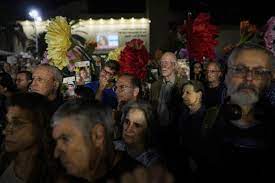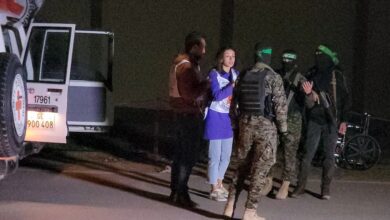North Macedonia, a potential EU member, is holding presidential elections
The presidential campaign in this Balkan nation is centered on issues of rule of law and EU accession.

Wednesday marks the beginning of the presidential election season in North Macedonia, a tiny Balkan republic that has spent nearly twenty years circling the EU without ever joining the 27-member organization.
Since no candidate is anticipated to surpass the 50% necessary for an outright triumph, a second round of voting will likely be held on May 8, which happens to coincide with parliamentary elections.
During the short campaign season, seven candidates are vying for the mostly ceremonial role, with issues like as EU membership, reforming the justice system, combating corruption, and alleviating poverty serving as focal points.
Gordana Siljanovska Davkova, who is supported by the opposition, has a 3.6 percentage point advantage against President Stevo Pendarovski, according to the most recent survey conducted by the Centre for Political Research and Communications.
The ruling social democrats in the nation are supporting Pendarovski’s (61 years old) bid for a second five-year term.
The VMRO-DPMNE alliance, which is the major opposition on the center right, is supporting 70-year-old Siljanovska Davkova.
Their approaches to neighboring Bulgaria’s demand that Skopje recognize an ethnic minority of Bulgarians in its constitution have been divergent. In any other case, Bulgaria has threatened to thwart North Macedonia’s attempts to join the European Union.
Although North Macedonia has been in the running to become an EU member since 2005, membership negotiations did not start until 2022, and the whole process is anticipated to take a long time.
Two members of the ethnic Albanian minority—Foreign Minister Bujar Osmani and Arben Taravari—from an opposition ethnic Albanian party—along with law professor Biljana Vankovska, who is standing for the socialist party Levica—are among the other presidential contenders.
A second round will be conducted between the two top candidates if no one wins outright on Wednesday. A legitimate result requires a turnout of at least 40%.
There are 2.3 million people living in North Macedonia, but only 1.8 million are registered to vote.
We anticipate the first findings perhaps on Thursday morning.
The election will be watched by around 320 foreign observers.






